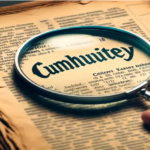Challenging a will is a complex legal process that can be emotionally taxing. If you believe a will is invalid due to factors like lack of mental capacity, undue influence, or improper execution, understanding the legal grounds and processes involved is crucial. An overview of contesting a will in Sydney is given in this guide, together with information on possible legal bases, the procedures involved, and the role of experts.
Legal Grounds
To successfully challenge a will, you must establish valid legal grounds. These typically fall into three main categories: testamentary capacity, formal validity, and breach of fiduciary duty.
Testamentary Capacity
The will-maker must possess sound mental capacity when creating a will. If you believe they lacked the mental ability to understand the nature and effect of their actions, you may have grounds to challenge the will. Due to the complexity of this, specialist medical evidence is required.
Key indicators of potential lack of testamentary capacity include:
- Inconsistent or irrational provisions: The will contains provisions that are inconsistent with the will-maker’s previous wishes or financial situation.
- Undue haste in creating the will: The will was created rapidly without proper consideration or legal advice.
- Evidence of susceptibility to influence: The will-maker was easily influenced or manipulated by others.
- Changes in personality or behavior: The will-maker exhibited significant changes in personality or behavior before or after creating the will.
Formal Validity
A will must adhere to specific legal formalities to be valid. If the will was improperly executed, lacked testamentary intent, or suffered from other formal defects, it may be challenged.
Common formal validity issues include:
- Improper execution: The will was not signed in the presence of two witnesses or the witnesses did not sign in the presence of each other.
- Lack of testamentary intent: The will-maker did not clearly express their intention to create a will.
- Revocation of a previous will: The will-maker revoked a previous will without creating a new one.
- Conditional wills: The will is subject to conditions that were not met.
Breach of Fiduciary Duty
If someone held a position of trust, like an executor or trustee, and abused that position to influence the will-maker, a breach of fiduciary duty may exist. This could involve undue influence, fraud, or coercion.
Presenting the Case
Effectively presenting your case is crucial for a successful outcome. This involves clearly articulating the legal grounds for the challenge and presenting compelling evidence to support your claims.
Key elements of a strong case include:
- Clear articulation of legal grounds: Clearly stating the reasons for challenging the will.
- Compelling evidence: Presenting strong and credible evidence to support your claims.
- Expert testimony: Utilizing expert witnesses to explain complex legal or medical issues.
- Effective storytelling: Presenting the case in a way that is easy to understand and emotionally compelling.
- Addressing counterarguments: Anticipating and addressing the opposing side’s arguments.
Mediation and Negotiation
Before resorting to litigation, consider mediation or negotiation to reach a settlement. These processes can be less stressful and costly than court proceedings.
Benefits of mediation and negotiation include:
- Preserving relationships: Maintaining family harmony and avoiding conflict.
- Cost-effective: Saving money on legal fees and court costs.
- Flexibility: Allowing for creative solutions and compromises.
- Control: Giving parties more control over the outcome of the dispute.
- Speed: Resolving the matter more quickly than through litigation.
Litigation
If mediation fails, the case may proceed to court. The process involves pleadings, discovery, and ultimately, a trial.
The court process typically involves:
- Pleadings: Filing a statement of claim and a defense.
- Discovery: Gathering evidence through requests for documents, interrogatories, and depositions.
- Pre-trial conferences: Meeting with the judge to discuss the case and potential settlement.
- Trial: Presenting evidence and arguments to a judge or jury.
- Appeals: Challenging the court’s decision if unsuccessful.
Appeals
If dissatisfied with the court’s decision, you may have grounds for an appeal. However, appeals are complex and expensive.
Grounds for appeal typically include:
- Errors of law: The judge made mistakes in applying the law.
- Insufficient evidence: The evidence presented did not support the court’s decision.
- Procedural errors: The court made procedural mistakes that affected the outcome.
- Newly discovered evidence: Evidence that was not available during the trial could change the outcome.
Costs and Funding
Challenging a will can be costly, involving legal fees, expert witness fees, and other expenses. Exploring funding options like legal aid or third-party litigation funding may be necessary.
Factors that can affect the cost of challenging a will include:
- Complexity of the case: The number of legal issues involved.
- Amount of evidence: The volume of documents and witnesses.
- Length of the litigation: The time it takes to resolve the case.
- Expert witness fees: The cost of hiring experts to provide testimony.
- Court fees: Fees associated with filing documents and attending court hearings.
Professional Assistance
Seeking advice from experienced will dispute lawyers is crucial throughout the process. Estate lawyers specializing in wills and estates possess the knowledge and expertise to guide you through the complexities of challenging a will.
Key qualities to look for in a will dispute lawyer include:
- Experience: Handling similar cases.
- Knowledge: Understanding the legal principles and procedures.
- Communication skills: Explaining complex legal matters clearly.
- Advocacy skills: Representing your interests effectively in court.
- Empathy: Understanding the emotional impact of the situation.
Conclusion
Challenging a will is a complex legal process demanding careful consideration and expert guidance. Successfully disputing a will requires a solid understanding of legal grounds, evidence gathering, and the court system. While mediation and negotiation are preferred, litigation may be necessary. Ultimately, seeking professional assistance from experienced will dispute lawyers is crucial to protect your rights and achieve a favorable outcome. Remember, time is of the essence, so acting promptly is essential.




















